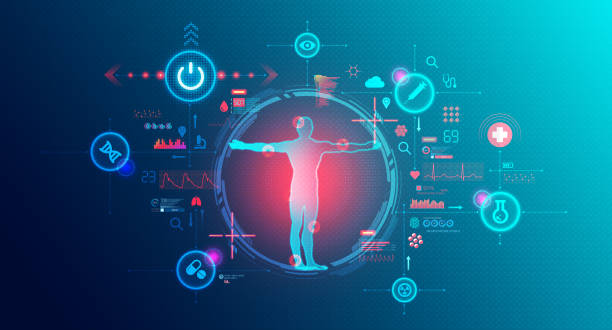Technology is no longer just about smartphones and laptops—it’s now something we wear every day. From fitness trackers to smartwatches, wearable biosensors are becoming a core part of modern health monitoring. These innovative devices collect real-time data on everything from heart rate to sleep patterns, helping people take control of their well-being like never before.
In this guide, we’ll explore what wearable biosensors are, how they work, their benefits, and what the future holds for this rapidly growing field.
What Are Wearable Biosensors?
A wearable biosensor is a small device that detects, records, and transmits information about your body’s biological signals. Unlike standard gadgets, these sensors focus on health data, allowing continuous monitoring without invasive procedures.
Some of the most common health indicators wearable biosensors track include:
- Heart rate and blood pressure
- Oxygen saturation (SpO2)
- Blood glucose levels
- Body temperature
- Sleep quality and patterns
- Physical activity and movement
By syncing this data with mobile apps or cloud platforms, users and healthcare providers gain actionable insights into overall health.
How Do Wearable Biosensors Work?
The magic behind biosensors lies in biometric data collection and smart analytics. Here’s a simple breakdown:
- Detection: The sensor captures biological signals, such as electrical activity from your heart or glucose levels in sweat.
- Conversion: These signals are converted into measurable data using advanced technology.
- Transmission: The data is sent to your smartphone or health platform in real time.
- Analysis: AI and machine learning tools interpret the data, providing insights and alerts when something is off.
This process makes biosensors reliable companions for both daily fitness tracking and long-term medical monitoring.
Popular Types of Wearable Biosensors
Not all biosensors are the same. They come in different forms, each designed for specific uses.
1. Fitness Trackers and Smartwatches
The most common type, these devices monitor activity levels, calories burned, heart rate, and even sleep cycles. Brands like Fitbit, Garmin, and Apple Watch dominate this space.
2. Continuous Glucose Monitors (CGMs)
For people managing diabetes, CGMs track blood sugar levels around the clock, sending alerts when glucose levels rise or fall too quickly.
3. Wearable ECG and Blood Pressure Monitors
Devices that track cardiovascular health are invaluable for early detection of irregular heartbeats or hypertension.
4. Smart Clothing and Patches
Beyond watches and wristbands, biosensors can now be embedded in fabrics or adhesive patches to monitor hydration, oxygen levels, and stress.
Benefits of Wearable Biosensors
The rise of wearable biosensors is more than a trend—it’s a healthcare revolution. Here’s why:
- Real-Time Monitoring: Instant feedback allows users to make quick lifestyle adjustments.
- Preventive Healthcare: Early detection of irregularities helps avoid bigger health problems.
- Convenience: Continuous monitoring eliminates the need for frequent medical visits.
- Personalized Insights: Data-driven reports help individuals understand their unique health patterns.
- Empowered Patients: People take an active role in their own health management.
For healthcare providers, biosensors mean better patient data, improved decision-making, and more effective treatment plans.
Challenges and Considerations
While the benefits are clear, wearable biosensors also face challenges:
- Data Privacy: Sensitive health information needs strong security measures.
- Accuracy: Not all devices are medically certified, and results may vary.
- Cost: Advanced biosensors can be expensive, limiting accessibility.
- Integration: Ensuring data compatibility with healthcare systems is still a work in progress.
Addressing these challenges will be key to making wearable biosensors a trusted part of everyday healthcare.
The Future of Wearable Biosensors
As technology advances, wearable biosensors are set to become even smarter and more personalized. Expect future devices to include:
- Non-invasive blood glucose monitoring without needles
- AI-driven predictive health alerts
- Integration with telemedicine for remote patient care
- Smaller, more comfortable, and stylish designs
- Advanced tracking of stress, mental health, and hydration
In the near future, biosensors could act as digital health assistants, guiding people toward healthier lifestyles and giving doctors better tools for proactive care.
Final Thoughts
Wearable biosensors represent the perfect blend of health tracking and technology. They empower individuals with real-time insights, enable preventive healthcare, and support medical professionals with valuable data.
As adoption grows, these devices will not only change how we monitor fitness but also redefine how we approach long-term health management.
Whether you’re a fitness enthusiast, someone managing a chronic condition, or simply curious about technology, wearable biosensors offer a glimpse into the future of personalized healthcare.

